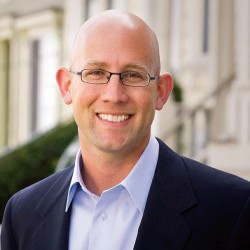 With 17 statewide measures, 24 local measures and a BART bond all coming before the voters in November, wading through the ballot, not to mention the voter handbook, promises to be quite a project. These measures run the gamut from necessary and important to foolish and ill-conceived, but there are two that matter a lot to City College. One would extend and modestly increase City College’s current parcel tax; the other would increase the City’s real property transfer tax on properties valued at more than $5 million, with the proceeds potentially funding Supervisor Jane Kim’s Free City College proposal.
With 17 statewide measures, 24 local measures and a BART bond all coming before the voters in November, wading through the ballot, not to mention the voter handbook, promises to be quite a project. These measures run the gamut from necessary and important to foolish and ill-conceived, but there are two that matter a lot to City College. One would extend and modestly increase City College’s current parcel tax; the other would increase the City’s real property transfer tax on properties valued at more than $5 million, with the proceeds potentially funding Supervisor Jane Kim’s Free City College proposal.
The parcel tax measure would extend the tax from 2021, when it is currently schedule to expire, through 2032 and increase it from $79 per parcel to $99 per parcel. Readers may remember that in 2012, even after City College’s accreditor had sanctioned City College, the voters of San Francisco voted by more than 70% to establish the current parcel tax. That measure generates approximately $15 million per year for the College and has been essential to the College’s survival since 2012.
Notwithstanding that additional revenue, the past several years have, of course, been difficult ones for the College. Although we remain open and accredited, the accreditation crisis has taken a terrible toll. Enrollment is dramatically down, with the College’s student headcount reduced from approximately 100,000 students in 2012 to approximately 60,000 today. Our count of full time equivalent students–the basis for most of the College’s funding from the State–has fallen from more than 35,000 four years ago to approximately 22,000 today.
The College has yet to feel the full financial impact of that loss of students, thanks to SB 860, legislation State Senator Mark Leno got passed back in 2014, which has provided tens of millions of dollars of so-called “stabilization funding” to partially offset the loss in revenue the College would have otherwise experienced. Unfortunately, the Leno legislation, and the extra funding it brings, will end in July 2017, less than a year from now. At that point the College will confront a loss of more than $25 million from the College’s approximately $200 million annual budget.
In anticipation of that eventuality, the College has promulgated and begun to implement a six-year plan to reduce our class schedule to bring it in line with our reduced funding. We hope that we will be able to avoid some (ideally, most) of those reductions by increasing enrollment. However, that six-year plan assumes extension of the parcel tax beyond its currently scheduled termination in four years. For accreditation purposes, as well as sound financial planning, it would be enormously helpful to the College to know this year that we can count on that revenue stream continuing for the foreseeable future.
The proposed incremental increase will generate between $3 and 4 million annually, not nearly enough to make up for our anticipated loss in State funding, but enough to allow the College to provide very modest salary increases for faculty who are still earning less than they were in 2012, and staff, who have also seen their wages stagnate during that time. Those raises have been built into the tentative agreements negotiated with AFT 2121 (the faculty union) and SEIU 1021 (the classified staff union), but are conditioned on the parcel tax measure passing.
If it passes, the revenue from the increased transfer tax on properties selling for more than $5 million will go into the City’s general fund, but the Supervisors have indicated a desire to use some of the proceeds from the tax to fund Jane Kim’s Free City College proposal. I am a big fan of Free City College, partly because I philosophically support the idea, but more immediately, because making City College free could well help us with the all-important task of building enrollment in the years ahead.
There is also a trustee race on the ballot. Fellow San Francisco Bay Times columnist Alex Randolph and I are seeking re-election, and with AFT 2121 pushing hard to elect queer newcomers Shanell Williams and Tom Temprano, some have begun talking about a lavender sweep on the College Board. Incumbent Amy Bacharach may have other plans; Amy has been a solid member of the Board and won’t be going down without a fight, I’m sure. With five strong candidates running for four spots, it is anyone’s guess how this contest will turn out. Whoever wins, the next Board is sure to be faced with some awfully tough decisions. Vote wisely, San Franciscans.
Rafael Mandelman is an attorney for the City of Oakland. He is also President of the City College of San Francisco Board of Trustees.
Recent Comments